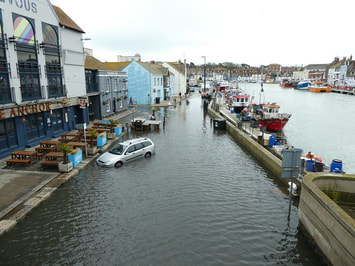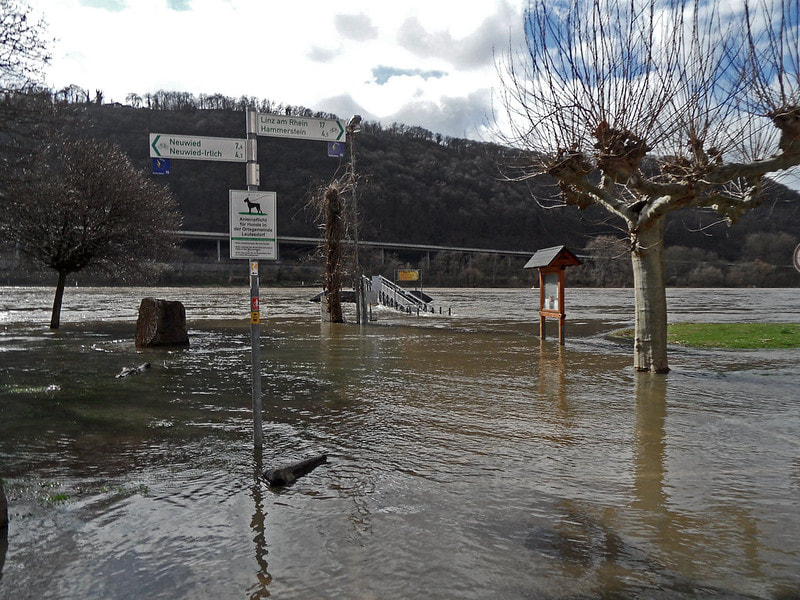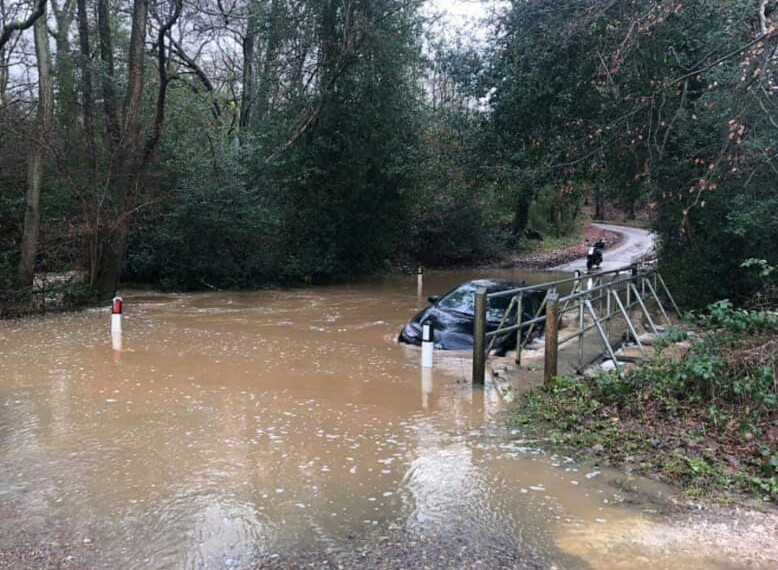Harris, Reed & Seiferth
|
 Anyone who's been through a flood knows that recovering after this kind of disaster isn't easy. You're forced to accept that irreplaceable family treasures and memories may be gone forever, your furniture is destroyed, potentially along with your home. It's a devastating and emotional moment and a lot to take in all at once. But you know the only thing you can do is move forward, and begin the steps needed to restore your home. As soon as the floodwaters recede, you can return to your home as long as officials give the OK to do so. Before entering your home, however, make sure it is safe! Tips for staying safe upon return:
Tips for claim reporting: Another important step to take when recovering from a flood is reporting your loss immediately to your insurance agent or carrier. While flood coverage is typically not provided under most homeowners and renters policies, flood insurance may be available to you through the federally regulated program known as the National Flood Insurance Program (NFIP). If you need assistance to locate your flood insurance carrier, you can call 1-800-621-FEMA (3362). A claims adjuster should contact you within a day or two after report of the claim, depending on the severity of the flood event. When reporting a claim, you should have the following information available:
Tips for inspections: The next step, according to the Federal Emergency Management Agency (FEMA), is to prepare for your inspection. After deeming the structure safe for entry, take as many photos or videos of the flood-damaged property on the outside and inside. Take pictures of high-cost items as well like washers and dryers, hot water heaters, televisions and kitchen appliances. It's also a good idea to separate the damaged from undamaged items prior to the inspection. When the adjuster arrives, they will inspect your property including taking measurements and photos and give you an overview of the NFIP flood claims process. Remember that some flood insurance claims are more complex than others. Some may be opened and closed quickly, while others may take weeks or even months to resolve. If your vehicle was also damaged in a flood event, it's best to call your auto insurance provider to see if you're covered for the loss. Source: https://www.foremost.com/learning-center/what-to-do-after-a-flood
0 Comments
For this reason, you should always be prepared and remember these Flood driving safety tips:
Again, you should always refrain from driving on flooded roadways. Although it's not the first thing that comes to mind when most people think about flooding, driving on flooded roads could cause life-threatening injuries. Looking for Auto Insurance? Your safety while you are driving is important to us. Take a look at quoting an Auto Insurance policy with us. You will get peace of mind knowing your auto insurance policy is backed by experts that will get you on the road quickly and fairly in the event of a loss.
(with drinking water, non-perishable food, first-aid materials, blankets, a battery-powered radio, a flashlight and extra batteries) and your family and immediately move to higher ground. Don't wait for evacuation instructions during a flash flood. If a flood is likely but hasn't yet occurred If you have time before a flood affects your home and a flash flood isn't a threat, you should activate your flood plan. Start with moving your valuables to upper floors and securing your outdoor belongings. Turn off utilities at the main valves. Disconnect any electrical appliances, but not if you are wet or standing in water. Listen to the television or radio and follow any instructions. You should be ready to evacuate. Close and lock your doors and windows. Have your emergency kit handy, as well as you car keys, a charged cell phone, credit cards and insurance information. During an evacuation Once you leave your house, make sure you are aware of the dangers you could encounter while trying to get to higher ground. Here are some rules:
Note that while you can purchase flood insurance at any time, there is a 30-day waiting period for coverage through the NFIP after you've applied and paid the premium before your policy is effective. However, we have several different options that will provide coverage with just a 10-day waiting period, or even immediately with a flood endorsement!
Source: https://www.foremost.com/learning-center/during-a-flood.asp According to the National Flood Insurance Program (NFIP), everyone lives in a flood zone. Even those who don't live near water are at risk, because anywhere it rains, it can flood. Heavy rains, clogged or insufficient drainage systems, nearby construction projects, broken water mains and inadequate levees and dams can cause flooding that put your home and belongings at risk.
Your home is one of your greatest investments. It's important to prepare ahead should disaster occur. Here are three simple steps to help make sure you're ready in the event of a flood.
It's important to know that most home policies don't cover flooding and just a few inches of water damage can cost thousands. To find out if you live in an area that is at risk for flooding, type in your address in the FEMA Flood Map Service Center and use this interactive tool to learn more. |
Categories
All
Archives
May 2024
|
Social MediaContact UsNavigation |
|
Website by InsuranceSplash
Privacy Policy | Terms of Use
© 2025 by HARRIS, REED & SEIFERTH INSURANCE GROUP, INC. All rights reserved.
© 2025 by HARRIS, REED & SEIFERTH INSURANCE GROUP, INC. All rights reserved.




 RSS Feed
RSS Feed